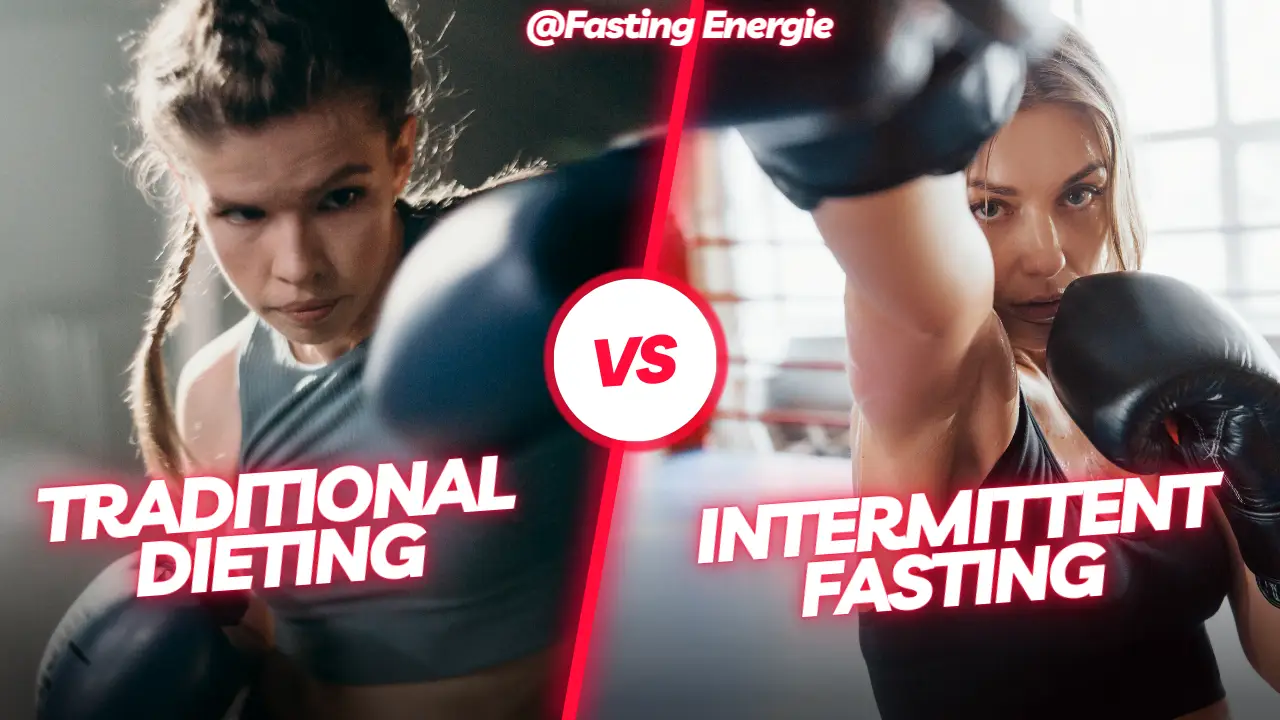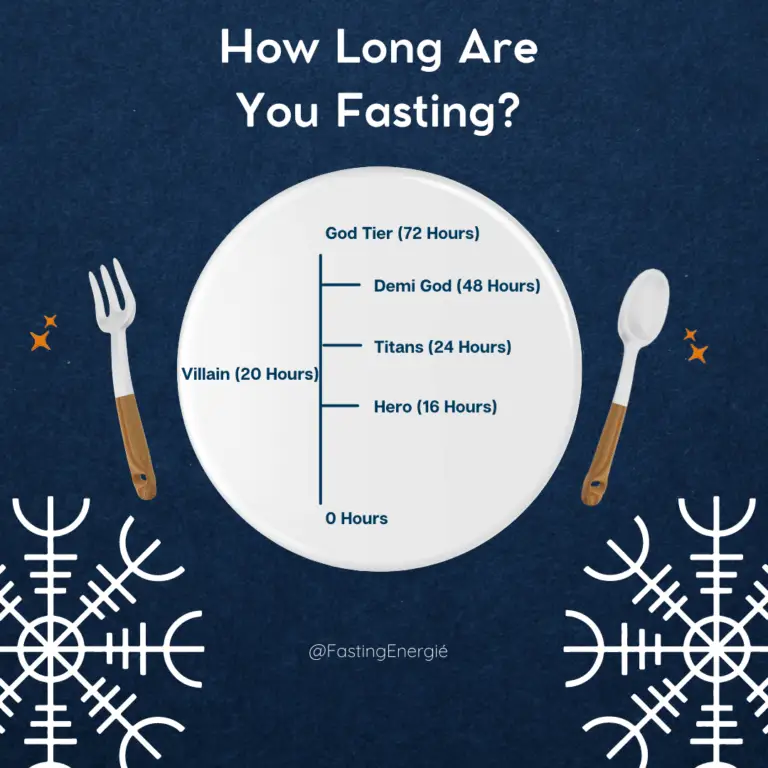Intermittent Fasting vs Traditional Dieting: Which Method Wins for Ultimate Weight Loss?
Intermittent Fasting vs Traditional Dieting
The quest for optimal health and fitness has led to a proliferation of dietary strategies. Among the myriad of options, Intermittent Fasting (IF) and Traditional Dieting stand out as popular approaches to weight management and overall well-being. But which one is better? Let’s dive into an in-depth comparison to understand the nuances of each and determine which might be the right fit for you.

What is intermittent fasting?
Intermittent Fasting (IF) is a nutritional regimen that alternates between eating and fasting. It does not prescribe specific foods or calorie intake, but rather focuses on when you should eat. Several prominent intermittent fasting methods exist, each with a different length of fasting and eating periods. Common ways include the 16/8 method (fasting for 16 hours and eating within an 8-hour window), the 5:2 method (eating normally five days a week but limiting calories to 500-600 for two non-consecutive days), and Eat-Stop-Eat (including 24-hour fasts once or twice a week).
What is traditional dieting?
Traditional dieting often entails reducing caloric intake on a daily basis or modifying nutritional intake to achieve a specific health goal, most notably weight loss. This method can range from reducing total calorie intake to adhering to specific dietary patterns, such as low-carb, high-protein, or low-fat diets. Traditional diets frequently focus on long-term behaviours and dietary modifications, with a particular emphasis on macronutrient composition and calorie deficits.
Difference Between Intermittent Fasting and Traditional Dieting
Fasting Schedules Versus Caloric Restriction
One of the main distinctions between intermittent fasting and standard dieting is the approach to caloric intake:
- Intermittent Fasting entails alternating intervals of fasting and eating. The primary focus is on meal timing rather than particular calorie restrictions during eating periods, while the natural reduction in eating opportunities frequently results in a decrease in overall calorie consumption.
- Traditional Dieting focuses on maintaining a caloric deficit over time, which usually entails continuing daily limitations or changes in the types of foods ingested in order to reduce calorie intake and affect nutritional balance.
The Impact on Lifestyle and Flexibility
These nutrition techniques can have a considerable impact on lifestyle and flexibility.
- Intermittent Fasting provides significant flexibility in terms of nutritional choices during meal periods, which many people find easier to incorporate into their lifestyle. It enables people to eat larger meals during their eating periods, which can be both socially and personally rewarding. However, the mandatory fasting intervals can be socially restrictive, especially during protracted fasting periods that coincide with social activities or family dinners.
- Traditional Dieting frequently demands continuous awareness and regulation of calorie intake, which might be more difficult to maintain over time. It typically necessitates more major changes in food choices and meal preparation, which can be restricting and socially isolating, but it provides steady, constant parameters that some people may find simpler to incorporate into their daily routines without radically altering meal timing.
Mechanisms of Action
How Does Intermittent Fasting Work
Intermittent fasting works mostly by altering eating habits rather than changes in food composition. Intermittent fasting entails extended intervals of not eating, which:
- Promotes metabolic switching: During extended fasting periods, the body switches from using glucose as its primary energy source to fat. This switch improves metabolic flexibility and promotes fat burning.
- Promotes hormonal changes: Fasting has a substantial effect on hormone levels that regulate metabolism. Insulin levels fall, allowing for fat burning, while human growth hormone levels rise, supporting muscle growth and repair.
- Boosts cellular healing mechanisms: Fasting activates autophagy, a process in which cells remove damaged components, which helps to improve cellular function and disease prevention.
- Lowers inflammation and oxidative stress: These improvements may contribute to increased longevity and health.
How Traditional Diet Works
Traditional dieting focuses on producing a calorie deficit by limiting food intake or changing the types of meals ingested. This approach:
- Directly lowers energy intake: Weight loss occurs when the body consumes fewer calories than it expends.
- Manages macronutrient intake: Many diets focus on adjusting the carbohydrate, lipid, and protein ratios to generate specific metabolic responses that lead to weight reduction or health gains, such as lowering carbohydrates to induce ketosis in a ketogenic diet.
- Increases nutritional density: Healthy food selections are frequently pushed over calorie-dense but nutrient-poor alternatives, resulting in better overall health.
Comparative Analysis: Benefits
Benefits of Intermittent Fasting:
Weight loss and management through reduced calorie intake during restricted eating windows.
- Increased insulin sensitivity and lower risk of type 2 diabetes: Fasting on a regular basis lowers insulin levels and improves blood sugar control.
- Improved heart health: Can lower inflammatory markers and “bad” LDL cholesterol, hence lowering heart disease risk.
- Brain Health: May improve brain function and resilience to neurodegenerative disorders by promoting neuronal autophagy and reducing inflammation.
Benefits of Traditional Dieting:
Consistent caloric intake allows for steady and gradual weight loss, making it easier to manage and forecast.
- Controlled nutritional balance: It is easier to regulate and adjust specific nutrient intake based on dietary objectives, such as increasing fibre or lowering saturated fat.
- Flexibility in food choices: Depending on the diet, there may be less limits on when to eat, which can accommodate different lifestyles and tastes.
- Potential for developing long-term dietary habits: A constant attention on food choices may result in more consistent dietary patterns.
Side-by-Side Comparison
- Flexibility and lifestyle compatibility: Intermittent fasting provides great flexibility during meal windows, but it necessitates severe fasting at other times, which can be difficult socially and practically. Traditional dieting requires constant control over what is eaten, which may result in better nutrient management but also requires more discipline and may feel more restrictive.
- The effect on metabolism and health: Both techniques benefit metabolic health, but intermittent fasting specifically improves cellular repair processes and metabolic flexibility. Traditional dieting offers a controlled method to managing dietary concerns such as excessive cholesterol or high blood sugar through altered food intake.
- Ease of Adherence This can vary greatly between individuals. Some people may find it easier to limit their meals to specific times rather than tracking calorie counts and food kinds throughout the day.
Effectiveness for Weight Loss
Weight Loss Results from Intermittent Fasting
Intermittent fasting frequently leads in weight loss, mostly through calorie restriction achieved by reducing the time frames during which food can be taken. This approach can also modestly enhance metabolic rate during fasting periods due to elevated norepinephrine levels, which improves fat burn. Many people find this eating pattern simpler to follow than standard calorie-restricted diets, resulting in sustained weight loss over time.
Weight Loss Results with Traditional Dieting
Traditional dieting, which frequently requires continuous calorie restriction or specialised macronutrient modification (such as low-carb, high-fat, etc.), usually results in weight loss by establishing a persistent daily calorie deficit. This strategy has been thoroughly investigated and has the potential to be quite effective, especially if it is carefully planned to guarantee a balanced nutritional intake.
Scientific Research and Evidence
According to studies, both intermittent fasting and standard dieting are helpful for weight loss. For example, research shows that intermittent fasting can result in 3-8% weight loss over 3-24 weeks, which is comparable to standard dieting. The individual’s desire for lifestyle adaption is frequently the deciding factor, which can have a substantial impact on adherence and long-term success.
Effects on Metabolic Health
Metabolic Changes With Intermittent Fasting
Intermittent fasting has been shown to enhance various metabolic health markers. It has been demonstrated to improve insulin sensitivity and lower blood sugar levels, both of which are necessary for the prevention of type 2 diabetes. Fasting also lowers oxidative stress and inflammation, both of which are important variables in chronic disorders like metabolic syndrome, heart disease, and cancer.
Metabolic Changes Associated with Traditional Dieting
Traditional diets can also benefit metabolic health, especially if it includes fruits, vegetables, lean meats, and healthy fats, which can help reduce inflammation and improve lipid profiles. Caloric restriction has been shown to lower metabolic disease indicators and improve cardiovascular health when paired with a well-balanced diet.
Long-Term Sustainability.
How to Maintain Long-Term Results With Intermittent Fasting
Intermittent fasting’s long-term viability is heavily influenced by the individual’s lifestyle, preferences, and ability to stick to the eating schedule. Some people find intermittent fasting freeing because it requires less frequent meal preparation, however others may struggle with the rigid eating times. Its effectiveness in long-term weight management and health maintenance is frequently dependent on incorporating fasting into one’s life as a permanent lifestyle change rather than a short diet.
How to Maintain Long-Term Results with Traditional Diets
Traditional dieting can be sustained if it progressively teaches and reinforces improved eating habits. Individuals who learn to make healthy food choices and understand portion proportions can sustain their weight loss and health benefits over time. However, the issue is frequently overcoming the initial restricted phase and transitioning into a more flexible maintenance mode while avoiding weight gain.
Personalisation and suitability
Tailoring Diets to Individual Needs
Both intermittent fasting and standard dieting can be quite effective, but their effectiveness is heavily dependent on how well they are matched to a person’s personal needs, tastes, and lifestyle.
- Intermittent Fasting: This may be more appropriate for people who prefer not to limit what they eat but rather when they eat. It can be especially beneficial for those who do not eat breakfast or who prefer to manage eating windows rather than calculating calories.
- Traditional Dieting: This strategy may be better suitable for people who require more structured meal plans or have special dietary needs, such as diabetic patients who need to maintain blood glucose levels or athletes who need to consume enough energy throughout the day.
Considerations Based on Lifestyle and Medical Conditions
Work schedules, social life, family meals, and physical activity levels are all important considerations when deciding on the best diet approach.
- Intermittent Fasting: May not be suitable for those who have high physical needs throughout the day or who have medical concerns that necessitate consistent meal intake.
- Traditional Dieting: May be more adaptable for persons with fewer flexible schedules or who require a consistent intake of nutrients throughout the day owing to medical issues.
Expert opinions and recommendations
Suggestions from Nutritionists and Dieticians
Nutritionists often advise adopting a diet plan that you can stick to consistently and long-term without feeling unduly limited or worried. They stress the importance of:
- Balanced Nutrition: Ensuring that the dieting strategy used does not jeopardise overall nutritional balance.
- Health Screening: Before beginning any new food programme, consult with a healthcare provider, particularly if you have pre-existing health concerns.
Best Practices for Choosing Between the Two approaches – Trial and Adaptation: Trying out both approaches for a short period might bring personal insights into which is more manageable in terms of adherence and satisfaction.
- Gradual Implementation: Gradually implementing dieting ideas into your lifestyle might assist prevent system shock and discover any problems early on.
Conclusion
Summary of insights
Intermittent fasting allows for greater meal flexibility while also improving metabolic health and potentially increasing longevity. Traditional dieting offers a planned approach to caloric intake and can be adapted to individual nutritional requirements for instant health benefits.
Final Recommendations for Selecting the Right Approach
The choice between intermittent fasting and standard dieting should be based on personal health objectives, lifestyle considerations, and individual preferences for meal timing versus food content. It is critical to assess how each strategy impacts personal well-being, daily function, and long-term health. Consulting with health professionals to adjust the diet plan to one’s unique needs and conditions is also strongly advised for best outcomes and safety.
Frequently Asked Questions
Is Intermittent Fasting Better Than a Regular Diet?
Intermittent fasting isn’t necessarily u0022betteru0022 than a regular diet; it’s simply a different approach to eating that some find more effective for their lifestyle and goals. It can lead to improved metabolic health and easier calorie restriction for some, but success depends on individual preferences, lifestyle, and adherence.
Is Intermittent Fasting Better Than Traditional Diet?
Whether intermittent fasting is better than a traditional diet depends on individual goals, health conditions, and dietary preferences. For some, intermittent fasting offers a more flexible and sustainable approach to reducing calorie intake and improving health markers than traditional dieting.
Is Cutting Calories Better Than Intermittent Fasting?
Cutting calories consistently is the fundamental mechanism behind weight loss in any diet. Intermittent fasting simplifies calorie reduction by limiting the time you’re allowed to eat, which may naturally lead to consuming fewer calories. However, direct calorie restriction can provide more immediate control over caloric intake and might be preferred by those who need a more structured dietary plan.
Why is Fasting Easier Than Dieting?
Many find fasting easier than dieting because it often doesn’t require counting calories or changing the types of food you eat, only the times at which you eat. This can simplify lifestyle changes for people who prefer a less meticulous approach to dieting.
Does Fasting Make You Skinny or Fat?
Fasting can lead to weight loss if it results in a caloric deficit over time. However, whether one becomes u0022skinnyu0022 or loses fat while maintaining muscle mass depends on the nature of their diet during eating periods, their overall activity level, and the duration and frequency of their fasting.
Can You Eat Whatever You Want on Intermittent Fasting and Still Lose Weight?
While intermittent fasting is flexible, the quality of your diet still matters. Eating whatever you want during eating windows and still losing weight depends on maintaining a calorie deficit. If eating freely leads to consuming too many calories or very poor nutritional choices, weight loss could be minimal or non-existent. For best results, it’s advisable to maintain a balanced diet with nutrient-dense foods.







